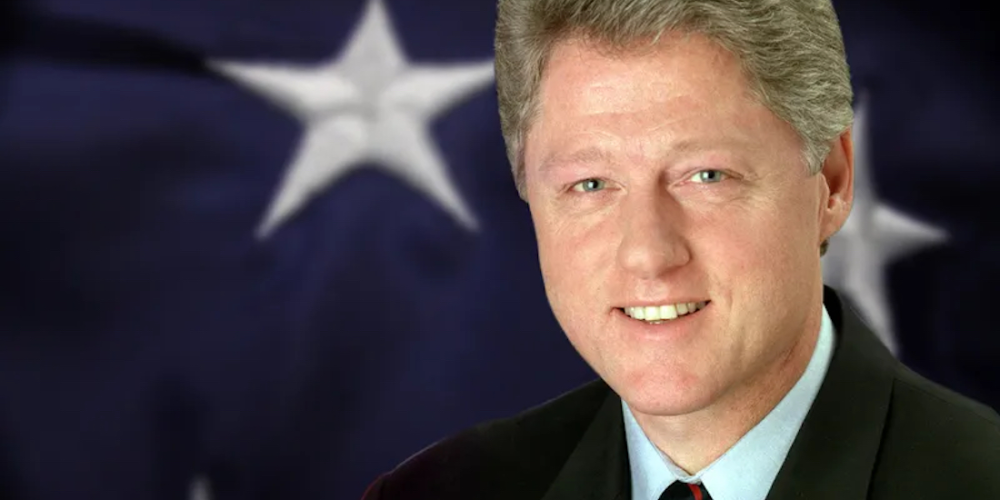
William Jefferson Clinton (b.1946). An American political leader who served as the 42nd President of the United States from 1993 to 2001. As a figure who redefined the Democratic Party’s approach to governance, Clinton is widely recognized for his blend of progressive rhetoric and conservative policy actions, particularly in the context of the 1990s political landscape. [Luce Index™ score: 82/100]
His presidency is often cited as a pivotal moment in the evolution of American centrism, with a legacy that continues to influence both major parties.
Bill Clinton emerged on the national stage as a charismatic and pragmatic leader, navigating a period marked by economic uncertainty and shifting political alliances.
His administration prioritized fiscal responsibility, enacting the Omnibus Budget Reconciliation Act of 1993, which raised taxes on the wealthiest Americans and contributed to turning a $290 billion deficit into a $124 billion surplus by 1999. This fiscal discipline, coupled with economic growth, is often cited among his most significant achievements.
A hallmark of the Clinton presidency was the reform of the welfare system. The Personal Responsibility and Work Opportunity Reconciliation Act of 1996 introduced strict work requirements and time limits for welfare recipients, resulting in a dramatic reduction in welfare rolls—from 12.2 million to 4.5 million over a decade. This policy, often referenced by conservatives as a model for social policy, remains a subject of debate regarding its long-term impact on poverty and social mobility.
Clinton’s tenure also saw the passage of the Defense of Marriage Act (DOMA) in 1996, which defined marriage at the federal level as a union between a man and a woman. While he later expressed regret and called for its repeal, at the time, the law reflected the prevailing conservative attitudes toward LGBTQ+ rights. Nevertheless, Clinton appointed openly gay and lesbian individuals to key government positions and publicly opposed discrimination against people with AIDS, signaling a complex stance on social issues.
Internationally, Clinton was proactive in addressing emerging threats, authorizing efforts to neutralize Osama bin Laden and responding to terrorist attacks. Domestically, he signed into law major trade agreements such as b and supported deregulation in the financial and telecommunications sectors—moves that drew both praise and criticism for their long-term economic effects.
Despite his successes, Clinton’s presidency was marred by personal scandals, culminating in his impeachment by Congress. He was acquitted by the Senate and completed his term with high approval ratings, but the controversies fueled ongoing debates about character and leadership in public office.
Clinton’s legacy is frequently invoked in contemporary debates over work requirements, fiscal policy, and the ideological direction of the Democratic Party. His ability to bridge liberal and conservative priorities has made him a reference point for both criticism and admiration across the political spectrum.
